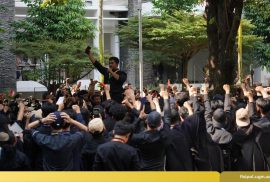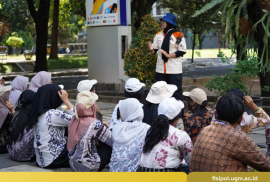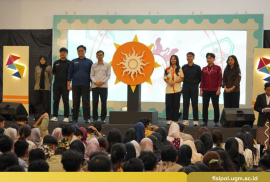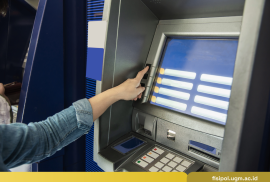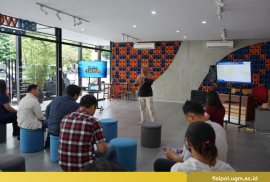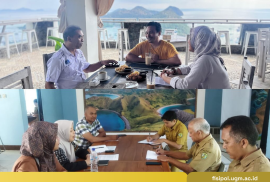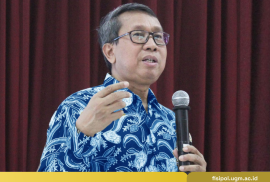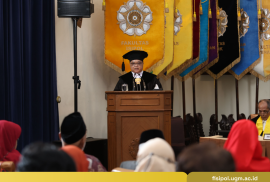Yogyakarta, August 7, 2025 — The series of events for PIONIR Society FISIPOL UGM 2025 officially concluded with the Consolidation, Action Simulation, and Inauguration. Quoting Tan Malaka, “Idealism is the final luxury possessed by the youth,” this very spirit was instilled through open forums and public orations.
New students were invited to discuss two critical issues in Indonesia’s socio-political landscape: the commercialization of education in state universities and freedom of expression. They were not only encouraged to voice their opinions but also to understand that oration is not merely about speaking loudly—it serves as a medium to deliver sharp, argumentative, and substantive criticism.

